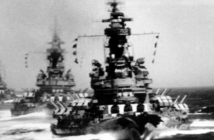Amelia Earhart was born July 24, 1897, 122 years ago this week in Atchinson, Kansas. A pioneer for aviation, in 1932 she became the first female and the second person ever to fly across the Atlantic Ocean solo.
Pursuing a life-long passion for adventure and flight, Earhart managed to save-up and purchase a yellow second-hand Kinner Airster biplane, which she dubbed “Canary.” On October 22, 1922 she set her first women’s flight record, reaching an altitude of 14,000 feet. By May 15, 1923, she received her pilot’s license from the Federation of Aeronautique Internationale (FAI), becoming the 16th woman to do so.
In 1928 she became the first woman to fly across the Atlantic, accompanying pilot Wilmer Stutz and Louis Gordon in a Fokker Trimotor. On June 17th they departed Trepassey Harbor, Newfoundland and exactly 20 hours and 40 minutes (the title of her first book) later, landed near Burry Point, Wales. The crew returned to a ticker-tape parade in Manhattan, and met with President Calvin Coolidge at the White House.
On May 20, 1932, she set off from Harbour Grace, Newfoundland in a Lockheed Vega 5B and 14 hours, 56 minutes later landed on a pasture near Derry, Northern Ireland, becoming the first woman to fly solo nonstop across the Atlantic and earning the Congressional Distinguished Flying Cross, amongst other awards.
Her final flight was an ambitious journey to be the first woman to fly across the globe. She embarked on the 29,000 mile trip Eastward in a Lockheed Electra 10E on May 21, 1937 from Los Angeles. Her final departure was from Lae, New Guinea on June 29th, but with cloudy skies and facing headwinds she made her final radio dispatch at 19:46, before presumably crash-landing into the ocean. Despite the largest and most expensive air and sea rescue search in history, Earhart, her co-pilot and plane were never discovered.
The letter she left her husband in the case that that was her final flight read:
“Please know I am quite aware of the hazards. I want to do it because I want to do it. Women must try to do things as men have tried. When they fail, their failure must be but a challenge for others.”




